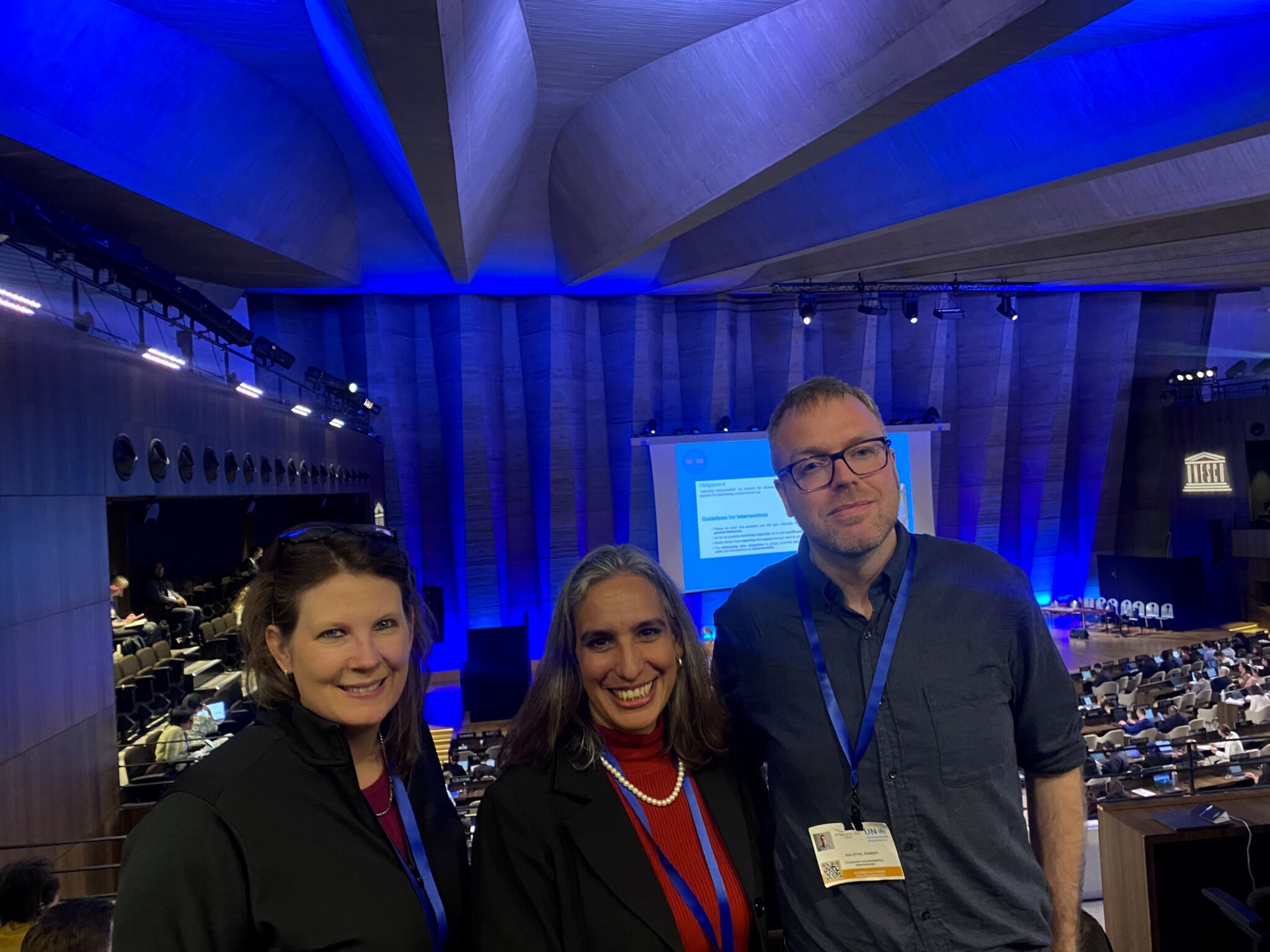ASH’s Policy Director Chris Bostic is attending the second Intergovernmental Negotiating Committee (INC-2) of the United Nations treaty to end plastic pollution in Paris, France from May 29 – June 2, 2023. He will share updates and progress here for our community to stay engaged and informed.

June 1, 2023 – Now for the hard part.
Today the INC continued in “contact groups” (breakout groups, really). Dividing in two brings the prospect of doubling output. I’m not sure if output doubles, but if it does, it may be less about doubling the conversations and more about halving the number of delegations intent on pumping the breaks.
But I shouldn’t be so jaded. Serious conversations took place today, and there seemed to be more agreement than discord. It was also heartening to see so many countries coalescing around important themes, like acknowledging that we can’t recycle or reinvent every type of plastic; some, like cigarette filters, simply need to disappear for good.
Among the most important and interesting debates today was how to categorize the thousands of types of plastics, chemical precursors and products in a way that allows for a coherent approach to ending plastic pollution. There were some in favor of focusing on the chemical precursors, eliminating the most toxic and the most polluting. This makes some sense, and places the focus upstream in product lifecycles (as opposed to downstream, like waste management and recycling), which is a promising model. But once again, there is a dark side. Sometimes, relatively benign chemicals can be used to make a product that, once unleashed on the market, does terrible damage. By now I’m sure you can guess: cigarette filters are the prime example.
Cellulose acetate, the plastic in filters, is not made from petrochemicals and is not particularly toxic on its own. Its toxicity is born from the act of smoking – combustion changes the chemistry and tobacco smoke contains over 7000 chemicals, including toxins, carcinogens and heavy metals. The filter doesn’t collect enough of these chemicals to make any difference to the health impact on consumers (and in fact filters make things worse overall), but it is enough to leach these chemicals into soil and water. Multiplied by trillions, the impact is profound.
To be successful, the UN Plastics Treaty will need to employ a holistic approach and recognize the importance of considering the entire lifecycle of plastic products. We can be sure that the tobacco industry will exploit any loophole in the treaty. So we can’t leave any loopholes.
Keep reading about ASH and the Stop Tobacco Pollution Alliance’s work on plastic pollution <Return to Day 3 Blog Advance to Day 5 Blog>








